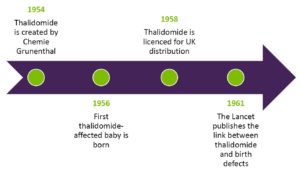Becoming A Beneficiary
The Thalidomide Trust continues to accept new beneficiaries who are living with disabilities caused by their mother taking the drug, thalidomide, during pregnancy.
If you were born between 1959 and 1966, your mother was in the UK when she was pregnant with you and you have physical damage that you believe was caused by your mother taking thalidomide during pregnancy, we would encourage you to apply to become a beneficiary of the Thalidomide Trust.

How do I apply to become a beneficiary of the Thalidomide Trust?
The first step is to complete this online form.
Alternatively, you can print or download a form and email it to [email protected] or post it to Thalidomide Trust, 1 Eaton Court Road, Eaton Socon, St Neots, Cambridgeshire, PE19 8ER.
Your application will then be assessed and we will normally get back to you within four weeks to let you know whether you meet our initial criteria and we need further information to assess whether you are eligible to become a beneficiary.
Full applications will be assessed by our team of experts, drawing on the latest evidence from across the world. Before a final decision can be made as to your eligibility to become a beneficiary of the Thalidomide Trust, you may be required to undergo a physical examination and have scans and genetic tests.
How long will it take to make a decision?
We always aim to make a decision on your application as quickly as we can and keep you informed on progress. However, the assessment procedure is complex so the application process may take as long as 12 months, particularly if we have to wait for the results of genetic tests.
Please note
Certain patterns of damage are widely recognised as having been caused by thalidomide. However, there are disabilities that look similar but have other causes so, even if you were born between 1959 and 1966, your disabilities may not have been caused by thalidomide.



